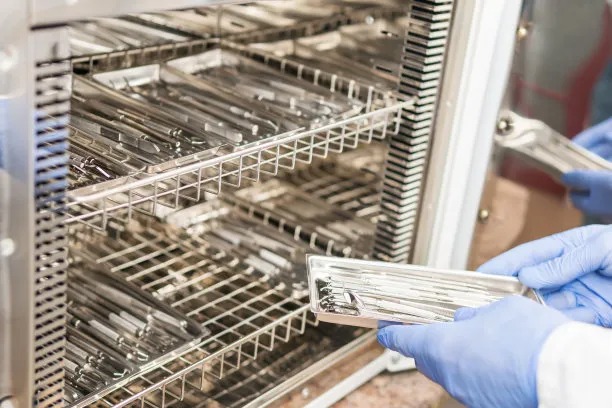Summary: Extracting a tooth can be a daunting experience, but understanding the process can significantly ease your concerns and promote better oral health. This comprehensive guide will walk you through the reasons for tooth extraction, the procedures involved, the aftercare necessary for recovery, and the impact of wisdom tooth extractions on overall dental health. Whether you are facing extraction due to severe decay, overcrowding, or periodontal disease, having insight into what to expect will empower you to navigate this essential aspect of dental care more effectively. Read on to gain confidence and knowledge as how to prepare for tooth extraction, ensuring optimal recovery and long-term oral health.
1. Reasons for Tooth Extraction

Tooth extraction may be necessary for a variety of reasons, with one of the foremost being severe dental decay. When a tooth is extensively damaged due to decay, the affected area can become a source of infection and pain. In such cases, dentists often recommend extraction as a more viable solution than extensive restorative work.
Another common reason for tooth extraction is overcrowding. In orthodontic cases, a dentist may remove one or more teeth to create adequate space for proper alignment. This is especially important in cases where the jaw is not large enough to accommodate all the teeth, leading to bite issues and aesthetic concerns.
Additionally, teeth impacted by gum disease often need to be extracted. Gum disease can lead to pockets of infection around the tooth roots, causing damage to the surrounding bone and tissues. In such scenarios, the preservation of oral health may necessitate the removal of the affected teeth.
2. Understanding the Extraction Procedure
Before the extraction, its crucial to have a thorough consultation with your dentist. During this appointment, they will assess your oral health and the tooth in question, often taking X-rays to better understand the situation. This evaluation helps in determining the best extraction technique to utilize.
The actual extraction procedure can vary based on whether the tooth is impacted or fully erupted. In simple extractions, the dentist will use tools to loosen the tooth and then remove it. In contrast, surgical extractions are more involved, often requiring incisions in the gum tissue to access the tooth roots more effectively.
Throughout the procedure, local anesthesia will be used to numb the area, ensuring minimal discomfort. However, in certain complex cases, sedation may also be employed to help you relax during the extraction. Understanding this part of the process can alleviate anxiety and help you prepare mentally for the procedure.
3. Aftercare for a Smooth Recovery
After tooth extraction, following proper aftercare instructions is essential to ensure a smooth recovery. Initially, you may experience some swelling and discomfort, which can be managed through prescribed pain relief medications and the application of ice packs on the affected area.
Its also vital to follow dietary recommendations post-extraction. Soft foods are preferable during the initial recovery phase, as they are easier to consume and less likely to irritate the extraction site. Drinking plenty of fluids while avoiding straws will also contribute positively to your healing.
Maintaining good oral hygiene is crucial but should be approached with caution. Avoid brushing directly on the extraction site for a few days, but continue to rinse your mouth gently with warm salt water to promote healing and prevent infection. Following these aftercare steps will significantly enhance your recovery experience.
4. The Importance of Wisdom Tooth Extractions
Wisdom tooth extractions hold particular significance, as these molars often become problematic due to their late emergence. Many individuals do not have enough space in their jaws, leading to impaction, infection, or crowding of adjacent teeth. In such scenarios, timely extraction can safeguard your oral health.
Moreover, ignoring the need for wisdom tooth extraction can lead to complications, including abscesses or damage to neighboring teeth. Regular dental check-ups allow your dentist to monitor the development of your wisdom teeth and recommend timely extraction if necessary.
Investing in the extraction of problematic wisdom teeth can also assist in preventing future dental issues and maintaining better alignment of your teeth. By addressing these concerns early, you can enjoy a healthier, more confident smile for years to come.
Summary:
In summary, tooth extraction is a common yet significant procedure that plays an essential role in maintaining oral health. Understanding the reasons for extraction, the procedures involved, and the necessary aftercare can empower individuals to approach this dental work with confidence. Additionally, wisdom tooth extractions are crucial for preventing future complications and promoting overall dental well-being.
This article is compiled by Vickong Dental and the content is for reference only.
Vickong Dental
Vickong Dental is a large medical group established in Hong Kong in 2008 by professors from well-known medical universities in Guangdong and Hong Kong, as well as medical doctors from key national '985' universities (including Master's supervisors and senior professors). The chain of branches brings together expert dentists with PhDs and Master's degrees from Hong Kong and Mainland China, committed to providing high-quality dental treatment.
"Vickong Dental Practices the University Motto of 'Healing and Serving Society,' with a Stable Operation for Sixteen Years. It Has Been honored with Hong Kong Enterprise Leaders's Choice,' and is a Global Trusted Implant Center for the Nobel Implant System. Recommended by Hong Kong Metro Broadcast and Guangdong Television, it Serves Customers from Over Thirty Countries and Regions, Gaining the Trust and Favor of Citizens from the Guangdong-Hong Kong-Macau Greater Bay Area and Surrounding Cities.

Thousands of customers' unanimous praise
The most recognized and highly recommended dental service by customers in the Guangdong-Hong Kong-Macau Greater Bay Area
We Ensure You Receive Detailed Care and Attention Here
Hong Kong standards, Shenzhen prices, Your Trusted English-speaking dentists

Vickong Dental Medical-Grade Instrument Disinfection Process
Vickong Dental Medical-Grade Instrument Disinfection Process

Vickong Dental Chain: A Warm and Comfortable Environment for Treatment






Appointment Hours

Q&A
Why choose Vickong Dental?
Vickong Dental practices the university motto 「Medicine to Benefit Society」, with each branch bringing together highly qualified dentists with doctoral and master’s degrees from Hong Kong and the Mainland, and has maintained seventeen years of steady operation。Recipient of 「2024 Hong Kong Enterprise Leaders Brand」, 「2025 Hong Kong Enterprise Leaders Brand」, a Nobel Biocare Global Trusted Implant Center, and a brand recommended by Metro Radio Hong Kong and Guangdong TV。
To date, we have served customers from more than thirty countries and regions,earning exceptionally high word-of-mouth recognition and trusted recommendations from residents across the Guangdong-Hong Kong-Macao Greater Bay Area and surrounding cities
We have eight major branches in Zhuhai、Shenzhen,and a consultation and service assurance center in Hong Kong,so you can book a free consultation at any time for any questions,which is very reassuring.
If I do not accept the quotation after the CT scan, will I be charged??
No! As long as the actual treatment has not started, you will not be charged any fees.
Will there be any additional charges during the treatment process?
No, there won’t be any additional charges. Before treatment begins, we will clearly explain the treatment plan and its corresponding fees. Only after the patient agrees and signs the consent form will we proceed with the dental service.
Can I pay in Hong Kong dollars?
Yes. Vickong Dental accepts payment in Hong Kong dollars. The amount will be converted based on the exchange rate of the day, and the applicable rate will be clearly communicated to you in advance.
Can I reschedule my appointment at any time?
Yes. Please contact us via **WeChat** or **WhatsApp** as early as possible, providing your original appointment time and details, along with your preferred new date and time slot for rescheduling.













